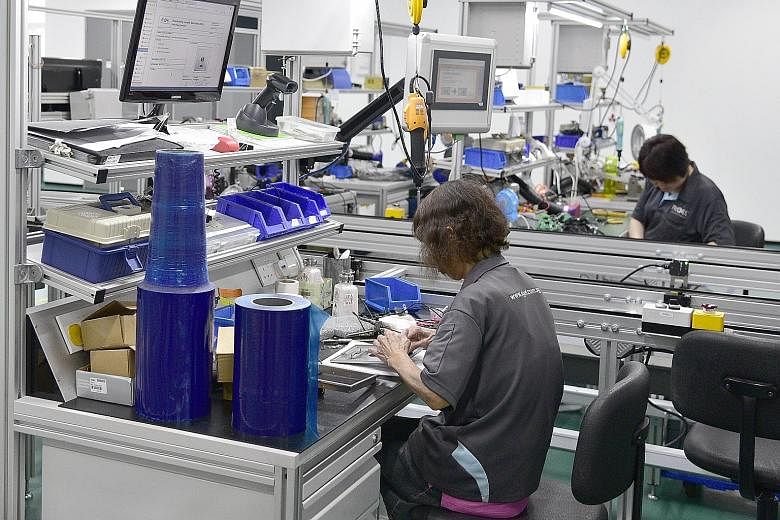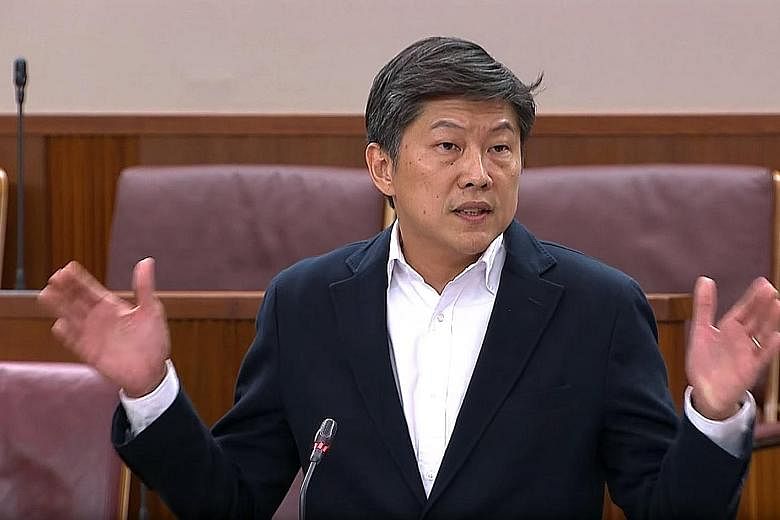Incoming labour chief Ng Chee Meng has mooted the idea of a committee to better support older workers, as Singapore grapples with an ageing workforce.
Mr Ng, making his first speech in Parliament yesterday as deputy secretary-general of NTUC, said this tripartite committee will look at ways to help mature workers to continue working if they choose to.
The committee will comprise representatives from the Government, the labour movement and companies.
Older workers are one of three groups of workers that Mr Ng said he wants to focus on. The other two are low-wage workers and middle-aged, middle-income workers.
While older workers might want to stay employed, the real question is whether employers are willing to hire senior workers, instead of having the fixed mindset that these workers are a burden, more expensive and untrainable, said Mr Ng, who is expected to succeed Trade and Industry Minister Chan Chun Sing as labour chief.
"Union leaders and I are worried for this group of workers," he said during the debate on the President's Address. "For many of them, the job is essential - just like us, they have expenses, mortgages, and dependants relying on them."
There are some government initiatives in place to help older workers, he said, pointing to WorkPro, which gives employers funding support to redesign their workplaces into more elderly-friendly spaces.
There is also the Special Employment Credit, which subsidises the net cost of employing mature workers. But more can be done, he added.
For example, he said the Government should empower the Tripartite Alliance for Fair and Progressive Employment Practices (Tafep) to look into workplace discrimination and do more to tackle the issue.
As for low-wage workers, Mr Ng noted that while the Progressive Wage model has done much to alleviate the hardship of such workers in the cleaning, security and landscape sectors since it was introduced in 2012, there are other sectors with low wage growth.
He proposed expanding the use of the Inclusive Growth Programme (IGP) and finding ways to support more workers.
The IGP is a fund that helps companies kick-start productivity projects, in return for sharing the productivity gains with their workers through higher wages.
"We will work with the Government for better support and prevent these sectors from stagnating," he said.
Freelancers, part-timers and the self-employed are another group that needs support, he added.
As project-based employment becomes more common, the Government should ensure they enjoy Central Provident Fund protection, medical coverage and skills development.
Mr Ng also noted that some middle-aged, middle-income workers are seeing less demand for their skillsets, or lack the opportunities to progress. "They may be currently employed, but their earnings may just be sufficient to meet their needs and their income growth is not high," he said.
There are now several government schemes outlined for this group of middle-income workers.
However, there is an entrenched mindset against hiring middle-aged workers which is worrying, he said.
The labour movement will also need more support from the Government and business leaders to redesign jobs, as well as encourage workers to upgrade their skills and stay relevant to advance their careers, he added.



